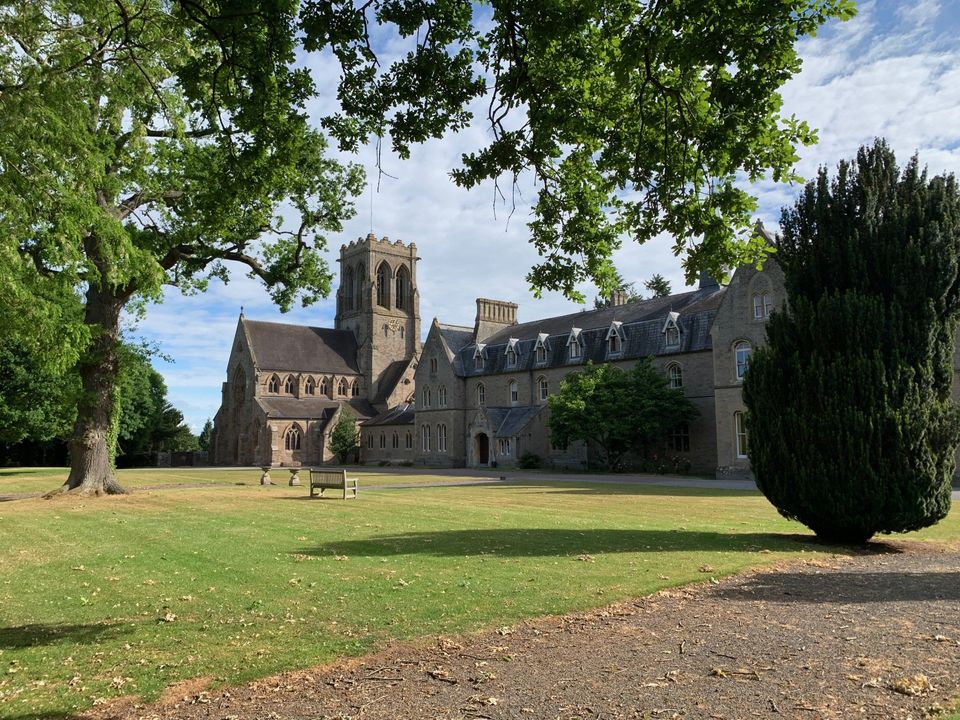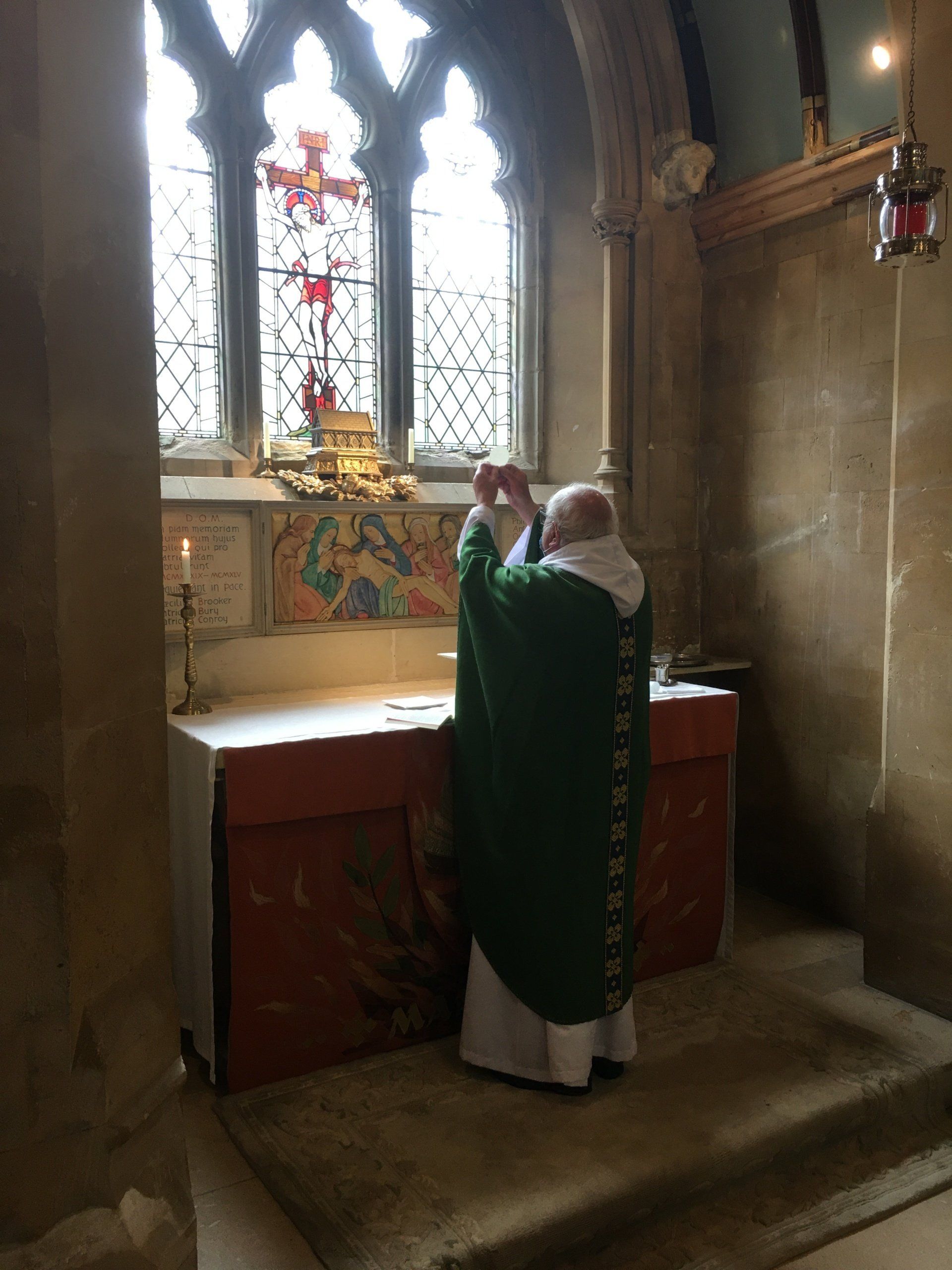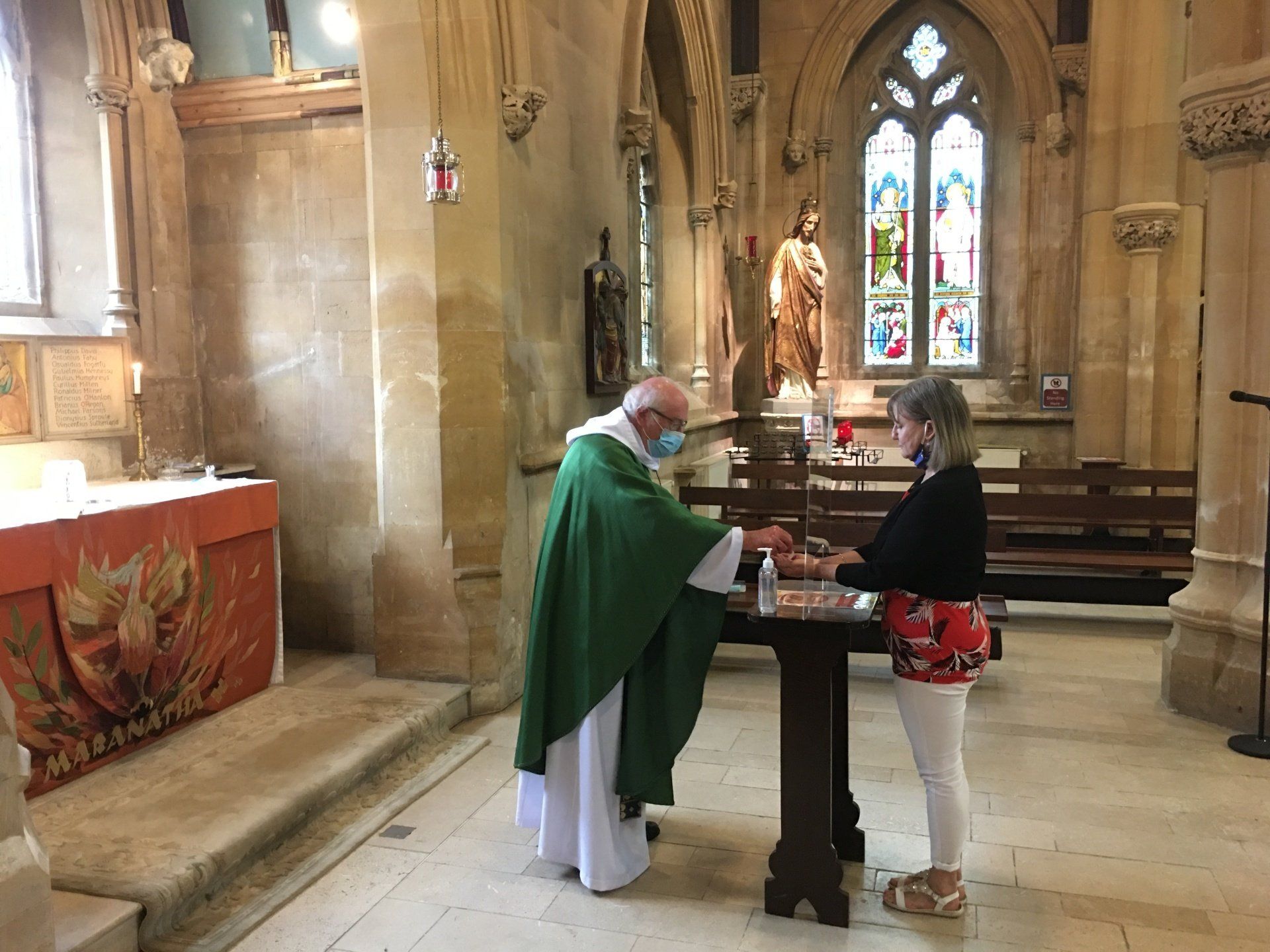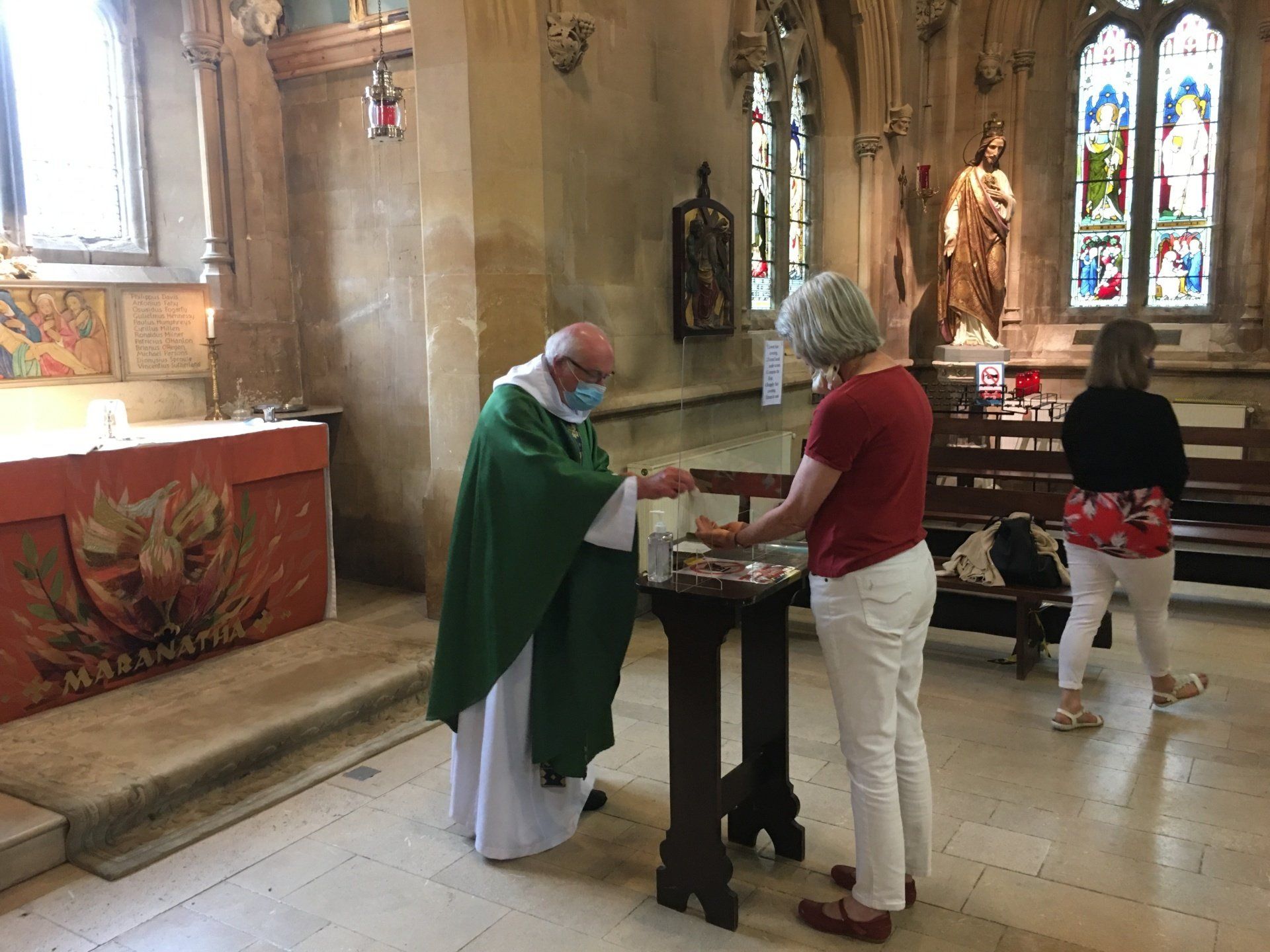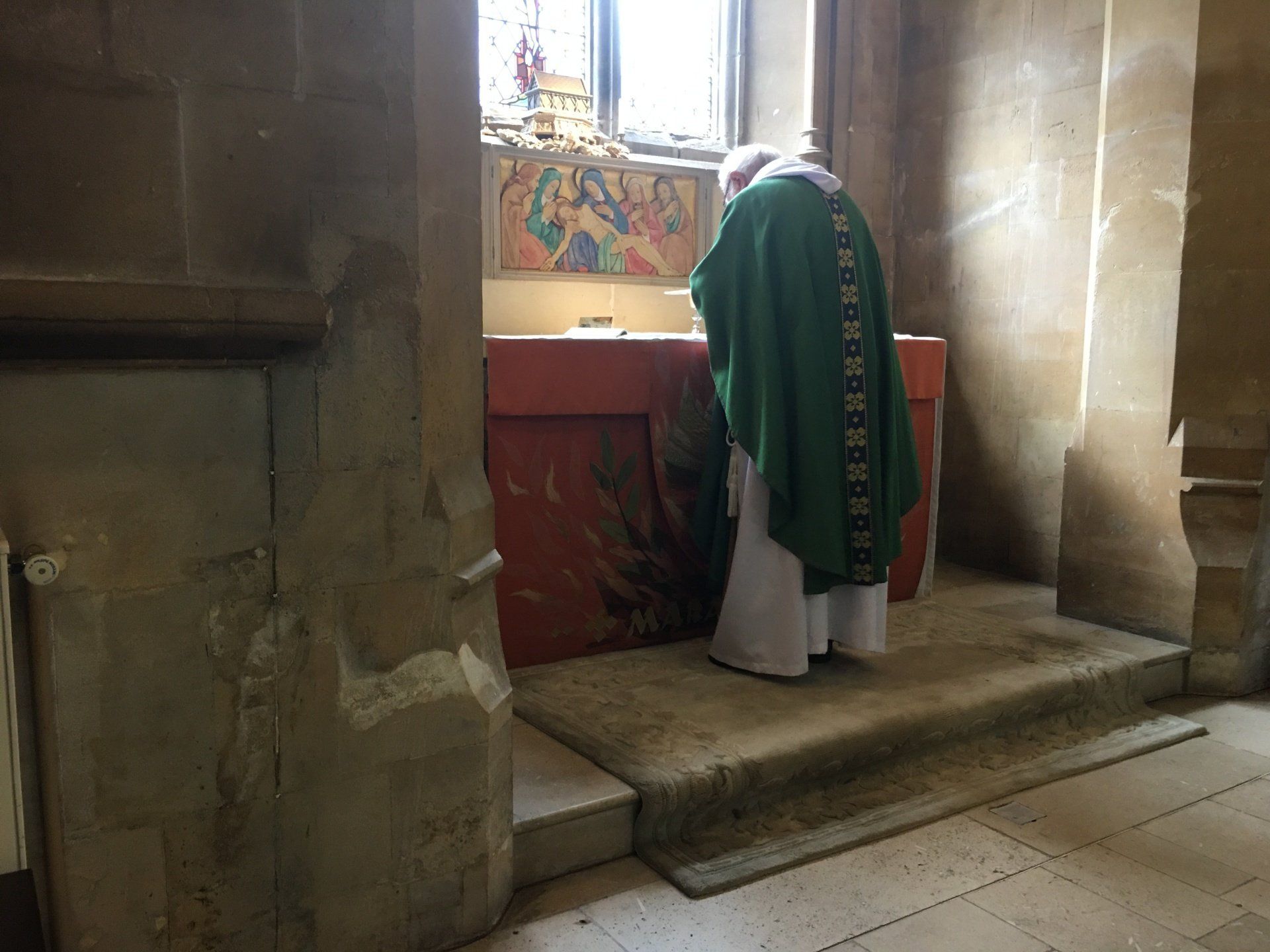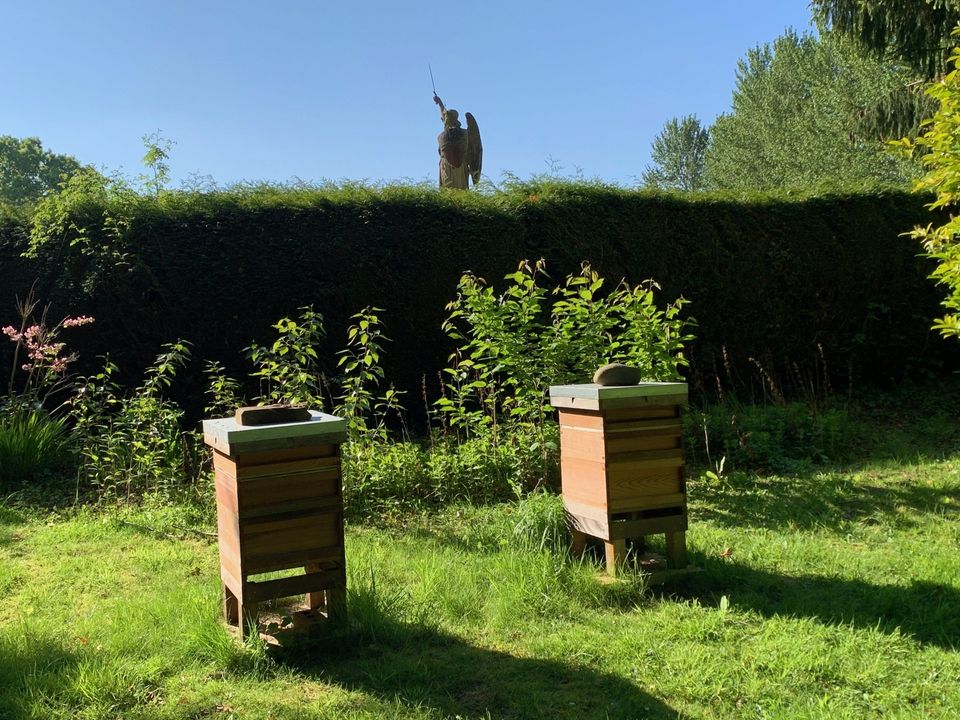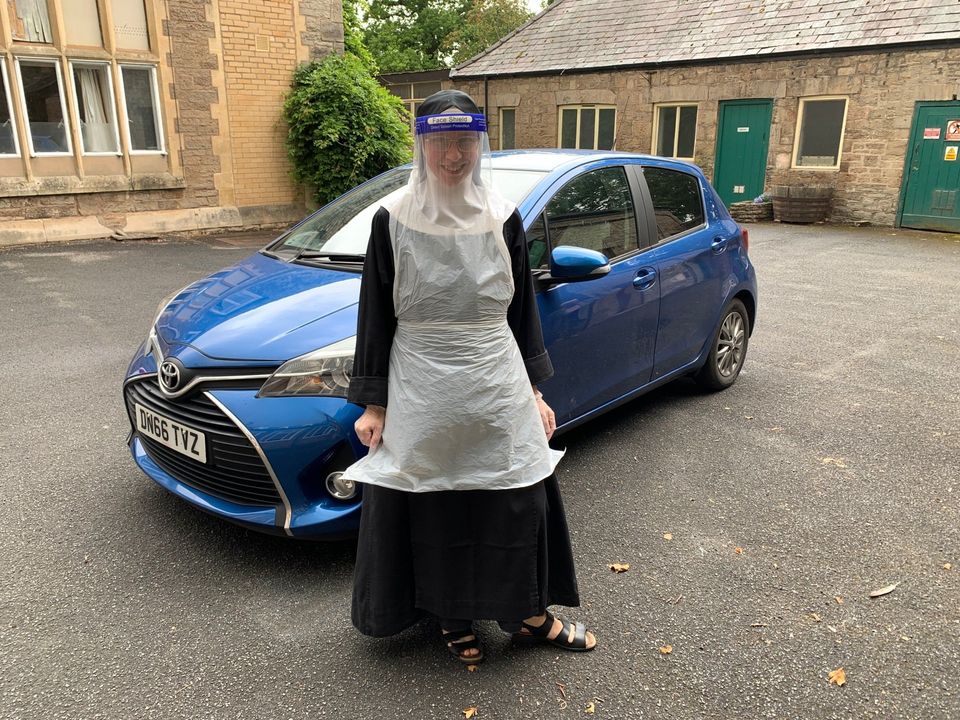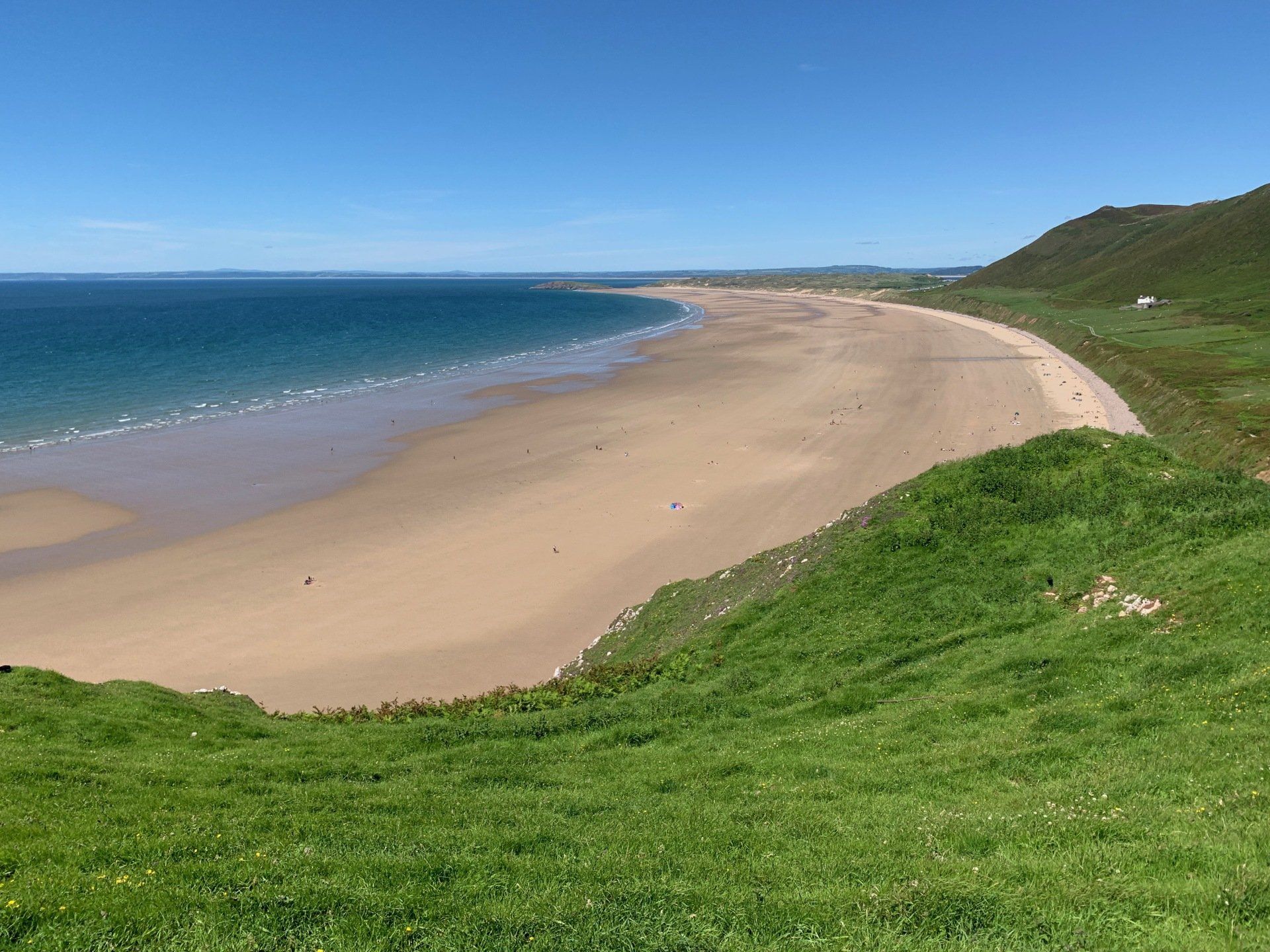Parish Masses
Will things ever return to normal? It all seems to be going on for a very long time and it is so sad to feel cut off even from our neighbours because of this social distancing.
At least the Parish Masses have started again, although we cannot share our Community liturgy at the moment because of the restrictions.
Abbot Paul, who is the parish priest, together with Br Augustine, have been busy turning the church around to be able to accommodate more people with the distancing required. Rather than use the main altar, the Memorial Altar is being used for the Masses.
A lot of work has gone in to ensure that we follow the measures correctly to keep everyone safe and well. A number of the parish have volunteered as stewards
It was good to welcome almost a hundred
people to Mass last weekend and around forty
between the two weekday Masses.

